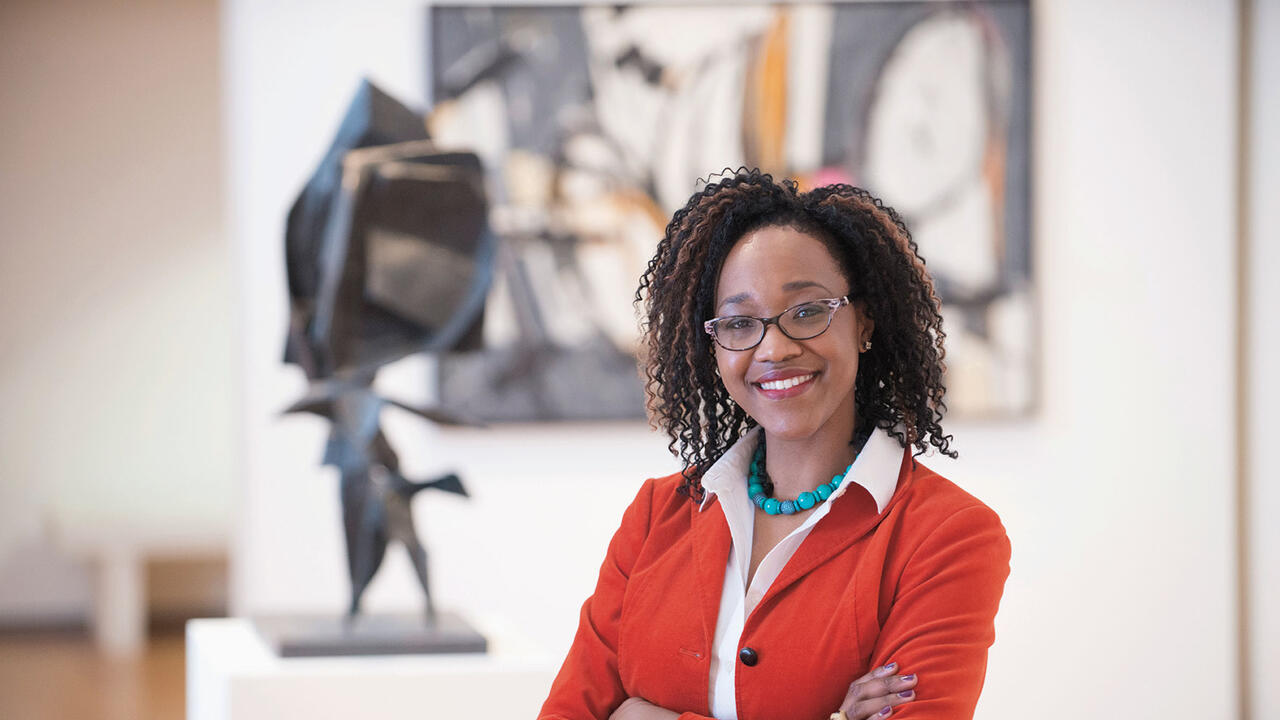Wellesley College Professor Spotlights Problem Faced by People of Color in Predominantly White Towns

Across the country, from Madison, Wis., to New Haven, Conn., people of color know well the kind of experience that Nikki Greene, Wellesley assistant professor of art, wrote about in a recent op-ed for WBUR’s ideas and opinion website Cognoscenti. Greene’s piece described the difficulties people of color face in mostly white spaces, particularly in the form of microaggressions, which she described as “subtle, daily instances of racism” that, experienced over time, have a damaging effect. WBUR’s Radio Boston took note of Greene’s op-ed and invited her to be a featured guest on the program, bringing the topic to an even wider audience.
In Greene’s op-ed and in her radio interview, she shared her reaction to news in late July that racist, anti-immigrant, and homophobic online posts had been made by Wellesley High School students. While noting in her op-ed that such problems are not confined to one town, she said hearing the news hit home. She wrote, “For most people of color and other underrepresented groups living or working in towns like Wellesley, we understand full well that the sort of disturbing, violent stereotypes that came from the high school students constitute an underlying sentiment that cannot be ignored. While the hate speech may have come as a surprise to some white residents, their lack of awareness of their own microaggressions exerted upon their neighbors contributes to the problem.”
In the more than 15-minute interview on Radio Boston, Greene spoke—as a mother, as a scholar, and as an African-American woman—about what can happen when people of color enter these spaces of homogeneity and what ensuing boundaries (of personal space, for example) can be crossed. Greene stressed that when acts, seemingly innocent or otherwise, are repeated over time, they become patterns that can have a negative effect on people of color.
Host Meghna Chakrabarti said she thought Greene was arguing that there may be “fewer steps than we think from an ‘innocent interaction’ to setting an example that leads to the kind of racist language” found in the local high school students’ denigrating online posts. Said Chakrabarti, “That’s a sobering thought, and I’m grateful to you for sharing that.”
Because of Greene and many others who are sharing their views and experiences, greater attention is being focused on these issues. Members of the College community recently joined with town residents in a solidarity gathering against hate at Wellesley’s Town Hall. Robbin Chapman, the College’s associate provost and academic director of diversity and inclusion, helped organize the rally with the World of Wellesley Board, on which Chapman serves as part of the organization’s partnership with the College. More than 400 town residents attended, she said. Local news accounts about the rally noted that Wellesley College President Paula Johnson sent a letter to staff and faculty about the incident with the high school students, indicating she had contacted Wellesley Public School officials to express her concerns. The Wellesley College Black Task Force also sent a letter to Wellesley School officials calling for action.
“Public responses like these from Professor Greene, President Johnson, and others in the Wellesley community are models of how to be our most resilient, to always chose to challenge ourselves and those around us to push through our fears and our anxieties about race,” Chapman said. “As we instigate more and more of these intentional and collaborative dialogues, the hope is that we can all have a greater self-awareness of how the historical past affects the present in profound ways.”
In his remarks for the school year’s opening assembly, Jamie Chisum, principal of Wellesley High School, stressed the need for change, telling the students to tell their peers to “stand up” against “hateful speech” and to “consider that when people around you feel excluded and less than full members of this school community, you have the power to do something about it. You have the power to reach beyond your comfort zone. You can leave your bubble and benefit from meeting and including someone new.”
At the conclusion of the Radio Boston interview, Greene shared that her children are doing well at their school and that “being a part of the Wellesley College community has been very empowering.” She added that she’s looking forward to continuing to build a community that “is supportive, open-minded, and open-hearted.”



